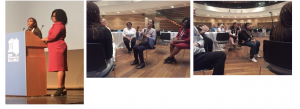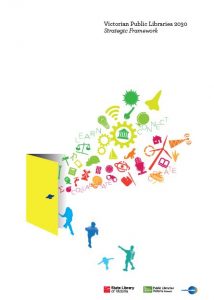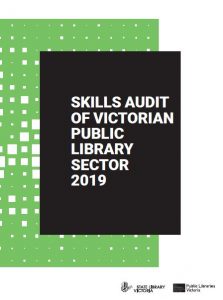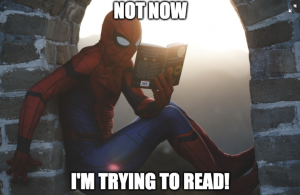Contributed by
Rajen Munoo, rajen@smu.edu.sg, Head, Learning and Information Services, SMU Libraries
‘Tis the season of thanksgiving, of reflection, of baubles, tinsels, good tidings, and gifting! With travel plans up in the air and the next opportunity for a face-to-face IFLA WLIC distant, my blogpost gifts to CPDWL a celebration of my last gathering at the IFLA WLIC 2019 in Athens and showcases the opportunities afforded to me by CPDWL as new SC member.
My story is around 5Is.
Involvement

Session 101: Active and Interactive Learning and Development Strategy – Continuing Professional Development and Workplace Learning and Evidence for Global and Disaster Health SIG. This was joint session with CPDWL and IFLA Special Interest Group E4GDH (Evidence for Global and Disaster Health):
The remit of this session was around the need to equip a skilled, flexible and agile library and information workforce for the future and to demonstrate a range of strategies and methods that improve learning and knowledge transfer – and build on the experiences of the participants. With interactivity being key, various options were put forth such as practical exercises, group work, or other innovative methods, e.g. Fishbowl Technique / Speed Networking / Pyramid Discussion / Gallery Method /Appreciative Inquiry / Opinionator Triangle / Knowledge Café / Flipped Classroom
Initiating
And so the team was formed co-led by Dr Gillian Hallam, Co-Chair CPDWL, Dr Anne Brice, Head of Knowledge Management, Public Health England and Feili Tu-Keefner as facilitator, Assoc Professor School of Library & Information Science, University of South Carolina. Included was Emma Farrow, Public Health England together with Blessing Mawire, Librarian & Knowledge Management Specialist, Pretoria, South Africa and Mercy Moyo, Senior programme Officer, ITOCA (Information Training & Outreach Centre for Africa) Pretoria, South Africa. With different time zones and countries, we had numerous virtual meetings and curated a successful programme down to the minute!
Ingredients
I gave a presentation entitled, “Engaging Students using a webinar to deliver and information literacy class as part of Emergency Preparedness Teaching and Learning at the SMU Library: Learning from Our Experience”
In 35 minutes, What do I cover? How do I structure my presentation? How do I fulfil the learning outcomes? My presentation plan, outline and transferrable learning strategies included:
Part A: Singapore in a VUCA World
- Scene setting [2 mins] > outline questions
- Video [5 mins]
- Reflection [5 mins]: Pairs / Table Talk
- Who are the different stakeholders? [Discuss at tables]
- Is anyone missing? [Discuss at tables]
iii. What opportunities for libraries and librarians (as first responders)? [Feedback via Mentimeter]
Part B: Case Study [15 mins]
Part C: Fireside chat [5 mins]
Blessing Mawire and Mercy Moyo used the fish bowl method for discussion, including a silent fishbowl member. This session was highly interactive and popular.

Interventions, strategies and methods that improve learning and knowledge transfer
- Self-Reflecting Questions: Posing a few scene setting questions before the start of your presentation piques the curiosity of your participants especially if it’s a provocative one!
- Video: This is good to grab the attention of your participants and also brings a sense of realism especially if the video is produced in-house as the one created by Blessing and Mercy.
- Fireside Chats: Creates and informal conversational setting personalising the experience where the facilitator and presenter share using a set of guided questions
- Mentimeter: Visual word cloud presentation of ideas for participants to share especially for introverted and extroverted participants.
- Fishbowl: Provides opportunities for proactive sharing of ideas and experiences by ‘taking the chair’ and facilitates discussion around a topic. A silent Fishbowl member plays the role of scribe, and resource person
- Social Learning: Tweets and postings using social media tools on social networking sites highlights the Aha! Moments and key learning points to a wider audience
Upon reflection, little did I realise the foresight of my presentation on our current COVID-19 pandemic.
In my current role, I have oversight of the SMU Libraries staff learning and development portfolio and I am excited about being involved in the taskforce to develop the CPDWL Toolkit – Transferring learning back to the workplace which I hope to use myself.
Integration
CPDWL made me feel welcome and I actively contributed in the following ways:
- Attended both the business meetings where I got to meet other members and understood the pulse of this awarding winning section.
- I also co-facilitated Session 184 Knowledge Café 2019 – Knowledge Management with CPDWL and Library and Research Service for Parliaments with Crehalet Marie-Estelle where we harvested ideas around the topic, “Focus on what the library does versus what it has”
- Session 251 Coaching Drop in Session – CPDWL with Management and Marketing was also enriching were I am still Facebook friends with my coachee who was from Athens!
In closing, being a CPDWL SC member provides opportunities for all! It’s how you seize them to be actively involved. I look forward contributing further during my term.




